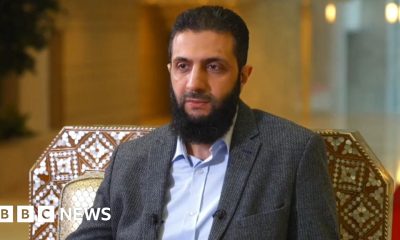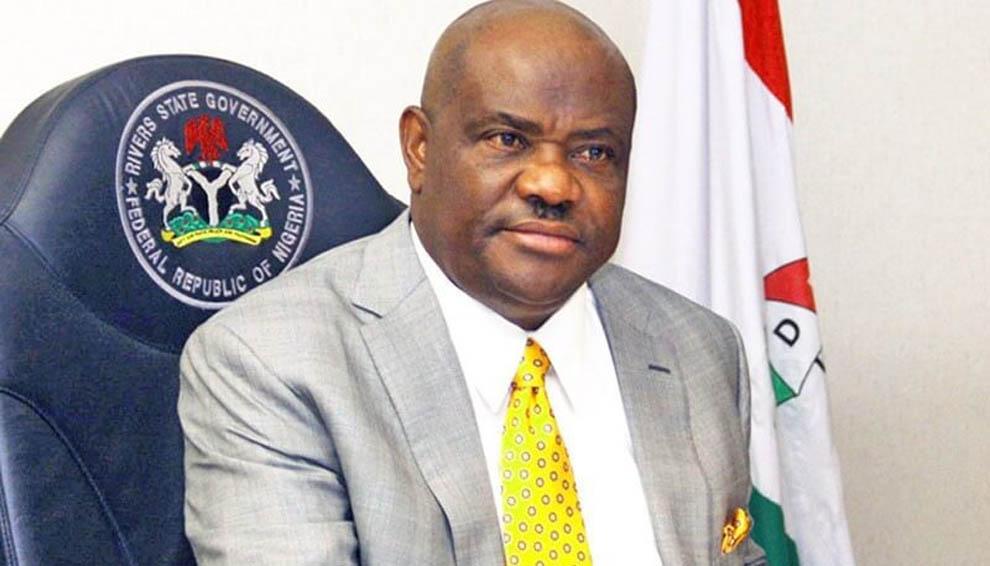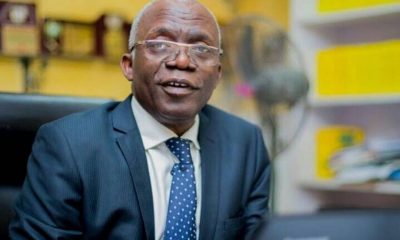Nigeria’s presidency says it “stands behind” an embattled minister facing calls for his resignation after extreme Islamist views he held in the past recently came to light.
Isa Pantami, minister of communications and digital economy, and also a renowned Muslim cleric, expressed views sympathetic to groups such as al-Qaeda and Boko Haram.
In one sermon from the 2000s, he said he considered al-Qaeda founder, Osama Bin Laden, a better Muslim than himself, and in another, he said he was happy when infidels were massacred.
Recordings of him expressing these views began circulating on social media last week, leading to calls for his resignation or sacking by President Muhammadu Buhari.
But in its first reaction since the saga began, presidential spokesman Garba Shehu said the minister was being “subjected to a ‘cancel campaign'”.
“In the 2000s, the minister was a man in his twenties. Next year, he will be 50. Time has passed, and people and their opinions – often rightly – change”, the statement said.
The minister also attempted to renounce his past views at the weekend, telling a local newspaper that some of the comments were based on his “understanding of religious issues at the time” and that he has changed several positions “based on new evidence and maturity”.
But that has not stopped calls for his sacking or resignation with many using the #PantamiMustGo hashtag on Twitter to express concerns over his access to sensitive data as the minister of communications.
He has also been defended under the #PantamiMustStay hashtag as the issue exposed the religious and ethnic lines in this multi-ethnic country.
What exactly did Mr Pantami say?
There has been a steady stream of new evidence of the views he held in the past and the latest are documents that appeared online on Wednesday.
The documents are purportedly from a 2010 meeting he chaired at the Jama’atu Nasril Islam (JNI), a top Islamic body, where it was agreed that Christians should be prohibited from building churches in city centres across northern Nigeria, which has a majority Muslim population although millions of Christians also live there.
Audio and video recordings have also emerged of Mr Pantami’s fiery prayers and sermons at different stages of his career as an imam. In one sermon after there had been a deadly religious conflict and tensions were still high in Shendam, Plateau state, he volunteered to lead Muslims back to their homes, saying that he was willing to die in the process.
In a 2006 speech, Mr Pantami publicly offered his condolences after the death of al-Qaeda’s leader in Iraq, Abu Musab al-Zarqawi.
In one audio clip, where he talks about the Nigerian army’s war against Boko Haram, he appears to be on the verge of tears as he passionately describes the militants as “our Muslim brothers” who did not deserve to be “killed like pigs”.
In another audio recording, he declares he is always happy when infidels are massacred.
He has not denied the authenticity of these texts, audio and video clips.
What did the government say?
Nigerians had been waiting for a reaction from the government and it came via a presidential spokesman on Thursday.
Garba Shehu, who speaks for President Buhari, said the administration “stands behind Minister Pantami.”
“The Minister has, rightly, apologized for what he said in the early 2000s. The views were absolutely unacceptable then, and would be equally unacceptable today, were he to repeat them,” he said in a statement which he also shared on his Twitter account:
But critics have pointed out that the minister was already in his 30s when most of his controversial statements were made and so, was fully aware of the ramifications.
The opposition People’s Democratic Party (PDP) tried to debate Mr Pantami’s views in the House of Representatives on Wednesday but it was blocked by the ruling party.
Why are these views just coming to light?
It began as a rumour last week when a local newspaper reported that Mr Pantami had been placed on a US watch list for his alleged links to terrorism.
There has been no confirmation from the US and Mr Pantami threatened to sue the newspaper and others that carried the reports, leading to a retraction and an apology.
But since then a series of audio and video clips of Mr Pantami making inflammatory comments have been posted on social media.
There has also been extensive reports by Nigerian online newspaper Peoples Gazette.
An old Wikileaks document citing a US diplomatic cable of Mr Pantami being thrown out of the Abubakar Tafawa Balewa University in Bauchi state, and from a mosque in Gombe for preaching inflammatory rhetoric, have also been re-circulated.
There was also social media posts about his time at the Abubakar Tafawa Balewa University where Mr Pantami, as cleric of a local mosque, was accused of instigating the gruesome murder of a Christian student leader who preached on the campus.
Mr Pantami has denied these accusations and also said that he was never dismissed from the university.
He told local newspaper, Premium Times, that people opposed to the introduction of a compulsory national identification number, which would be needed to get a mobile phone number, were the ones attacking him.
Who is Isa Pantami?
*The 48-year-old is currently Nigeria’s Minister of Communications and Digital Economy
*Was formerly head of the National Information Technology Development Agency (NITDA)
*From Gombe State in north-eastern Nigeria where he began his education at the Quranic Tsangaya schools popularly known as almajiri
*Obtained a PhD from Robert Gordon University, Scotland but was also schooled in Saudi Arabia
*He is chief Imam at the popular Al Mannar mosque in Abuja where he still leads annual teachings during the Ramadan fast.
Why are some Nigerians so worried about Pantami?
As head of the communications ministry, he oversees agencies responsible for databases of Nigerians and expatriates in the country.
Some people have expressed concerns that a minister with past sympathy for Islamist militant groups has access to such critical data.
Mr Pantami also oversees the web infrastructure for most government ministries and agencies, armed forces, intelligence agencies, and Nigeria’s satellite infrastructure that provides communications and navigation support for the air force.
The backlash he is facing seems to be largely on social media.
Offline, ordinary Nigerians are less concerned about the minister’s past views and he has received support from Muslim groups in the North, many of whom do not share his past extreme views but say his apology is proof he is a changed man.
-BBC

































